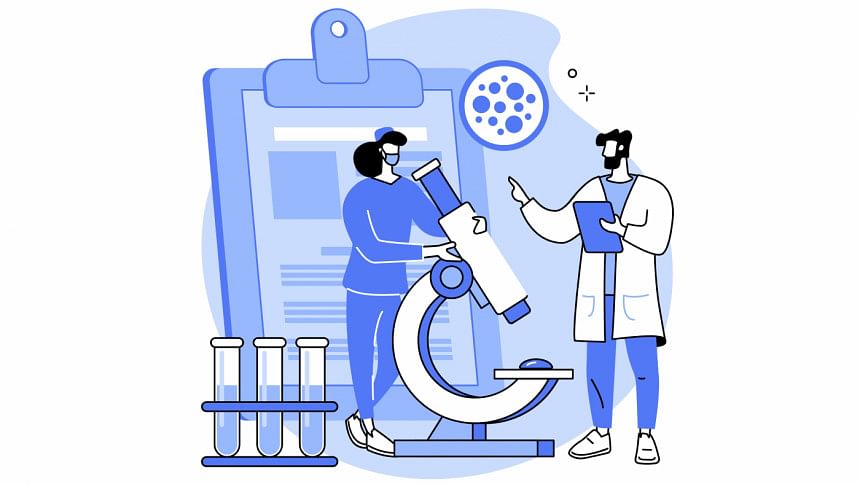How to build a career in healthcare technology

Broad in nature yet with a common goal, the world of healthcare technology is involved in developing and making use of modern technological innovations to further the world of healthcare. It is, in effect, a marriage of two of the most important fields of research in today's world and serves the singular purpose of improving the diagnosis and administration of health care.
Of course, even with all that being stated, it might be difficult to pinpoint exactly what the world of healthcare technology even is. An easy way to understand this would be to ask yourself a question – when hospitals run blood tests, what are they making use of? Machinery, of course. Sophisticated devices and equipment that aid in carrying out tests to see whether the patient's body is in a healthy state or not. All of this is made possible by the innovations brought about by the field of healthcare technology and biomedical engineers.
Biochemistry tests and medical imaging
Most biochemical tests require accurate quantitative results to measure whether the patient has healthy concentrations of certain substances in their body. To measure these values, specific machinery is required, which the hospitals pay large sums to buy.
Mohsinul Islam, a Clinical Biochemist at Dr MR Khan Shishu Hospital & Institute of Child Health, talks about the importance of medical blood tests, "We can't tell if the patient has an infection or an iron deficiency or complications in the liver without any of these tests. The machines are important, we might not be developing them here but all biochemists working in a hospital must be aware of the importance of each and every one of the tests they carry out as well as how to operate the machines. For that, plenty of lab training is required."
In addition, Mohammed Nawshad, a master's graduate in Biochemistry and Molecular Biology, also shares his experience with using modern techniques for biochemical tests.
"Techniques such as ELISA can be used for disease detection and also play a pivotal role in biological research areas. The results you get here are quantitative and they allow you to identify particular substrates, so it can be very sophisticated. The experience for me was overwhelming, and I think it's imperative for all interested scientists to brush up their laboratory skills," he says.
In general, when it comes to the application of healthcare technology in lab-based situations, a background in life sciences is always expected. However, given the variety present in this field, engineers and physicists can also play a role in the development and maintenance of the equipment. X-rays and MRIs, for instance, are based entirely on concepts popular in physics and are merely applied in healthcare facilities.
Artificial intelligence and machine learning
Artificial intelligence (AI) is playing a huge role in boosting medical care services. While these facilities are not utilised all across the globe, many hospitals are slowly making use of the various advantages provided by modern AI technology. According to an article by Foresee Medical, clinical documentation, symptom pattern recognition, and precise drug prescription can all be boosted in speed and efficiency thanks to machine learning. On top of that, skills and methodologies well known by AI researchers, like natural language processing, to develop medical algorithms are highly sought after in upscale hospitals and research centres.
While this work is focused on healthcare facilities, this is a field with a particular demand for people with a background in computer science and, preferably, AI. While career-wise this might seem like a niche trajectory, Foresee Medical predicts the future for AI in medicine to be bright and filled with possibilities.
Electronic record keeping
This is perhaps the most fundamental application of technology in medical services to the point where many might not even think of it to be "technology". Electronic record keeping is important not only to keep track of patients' status but also to compare it to previously existing data to find patterns in diseases and to study potential pathogen spread and growth. The development and maintenance of applications that keep track of large amounts of data on a regular basis is, thus, crucial.
Reference:
Foresee Medical. AI in Healthcare.
Raian Abedin is a student at NSU.

 For all latest news, follow The Daily Star's Google News channel.
For all latest news, follow The Daily Star's Google News channel. 








Comments